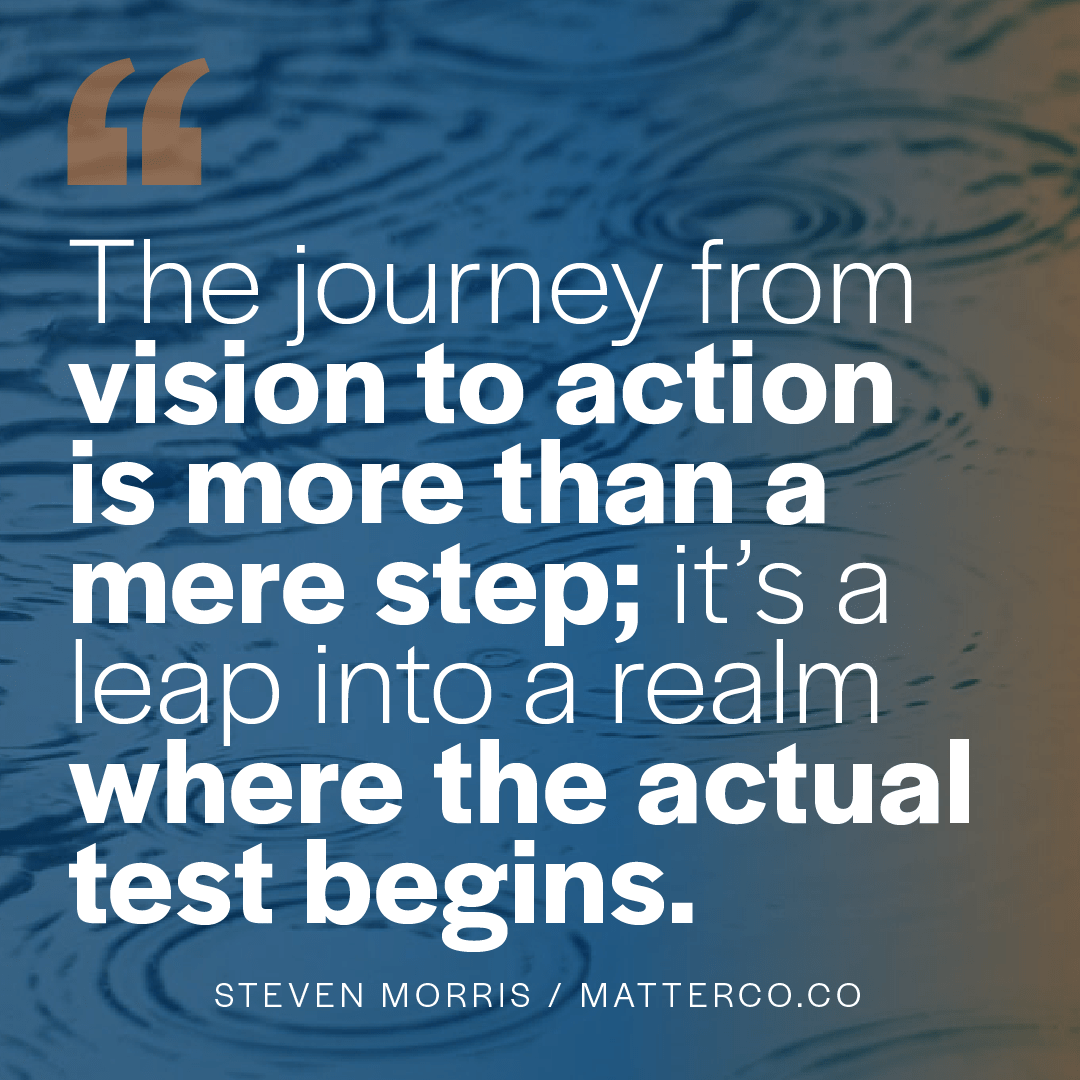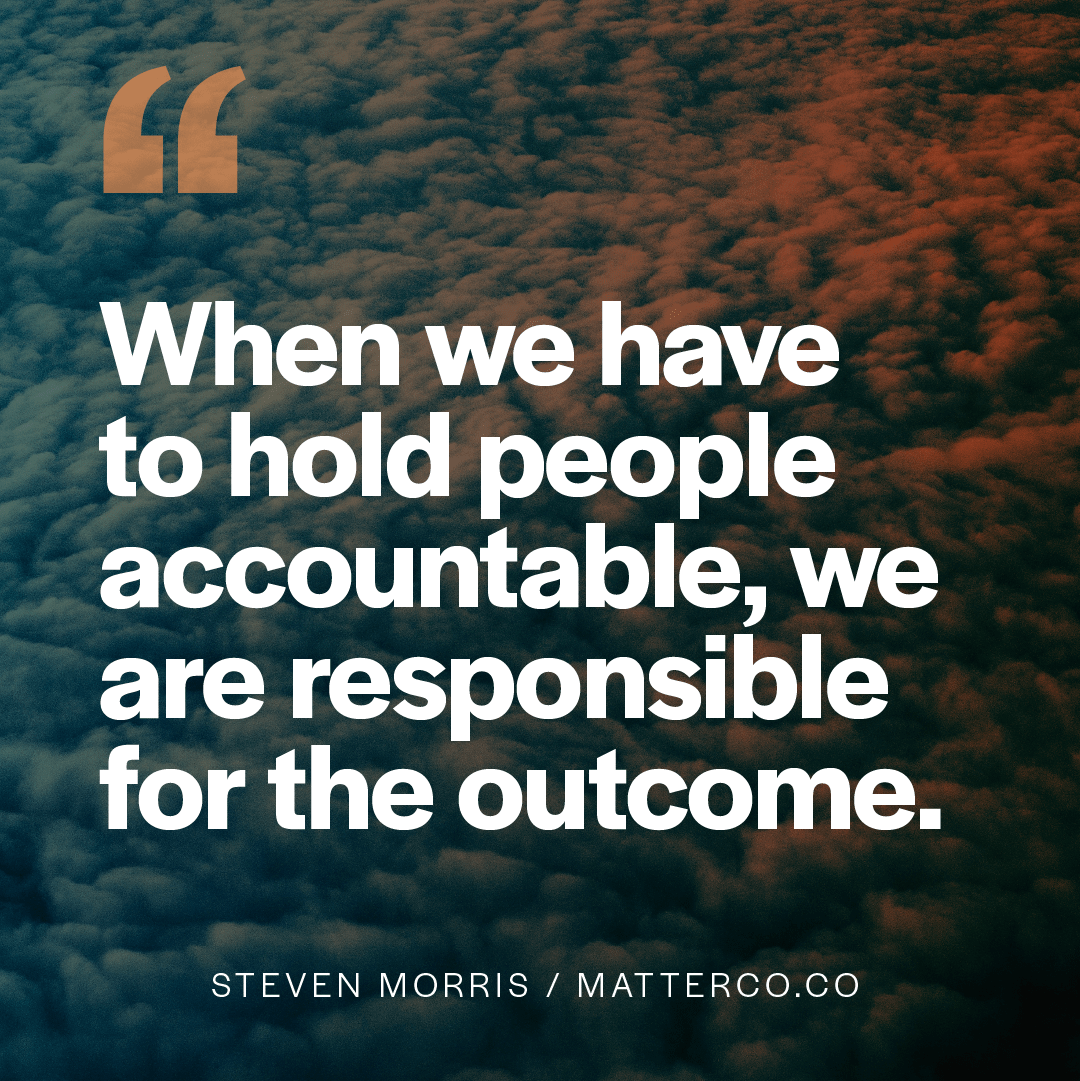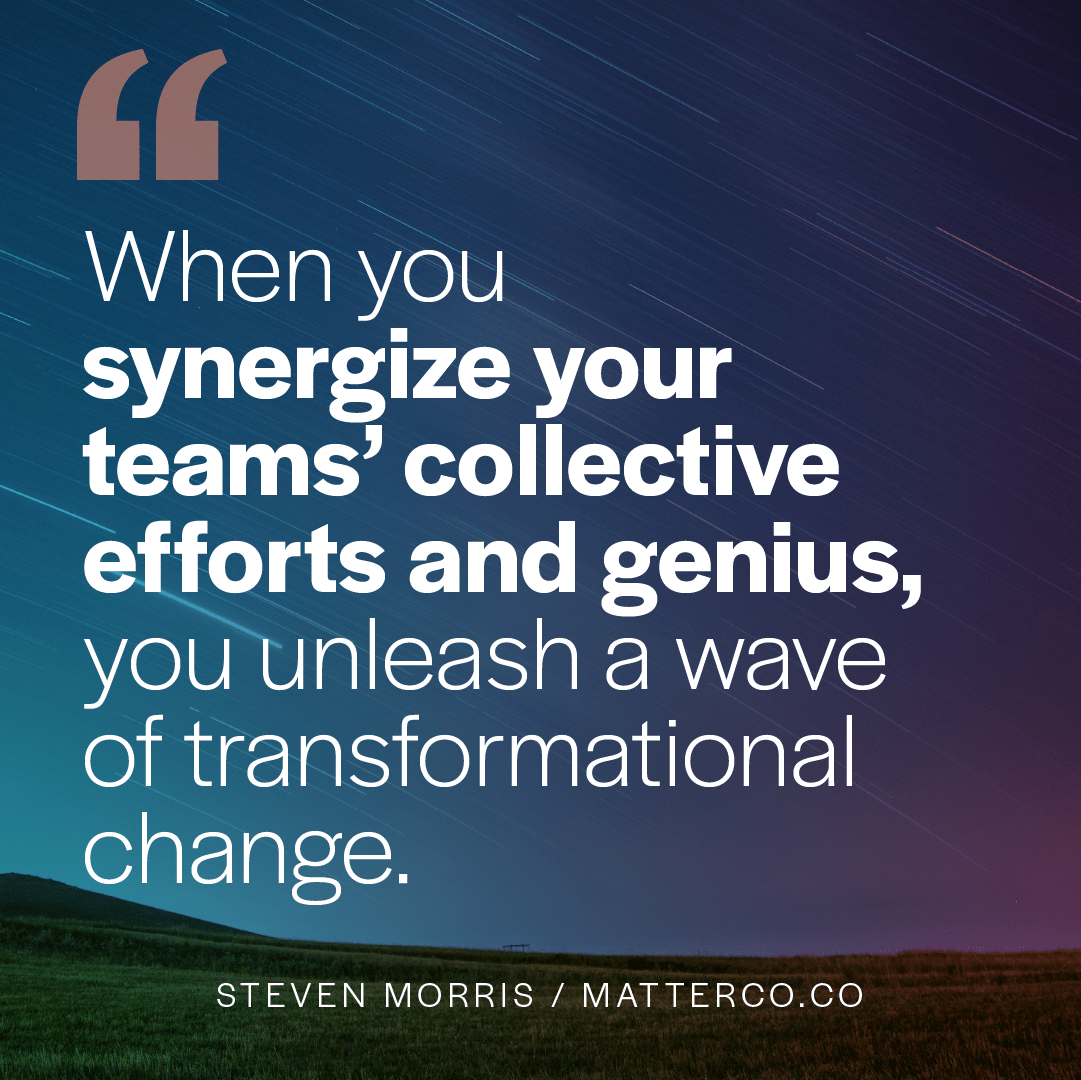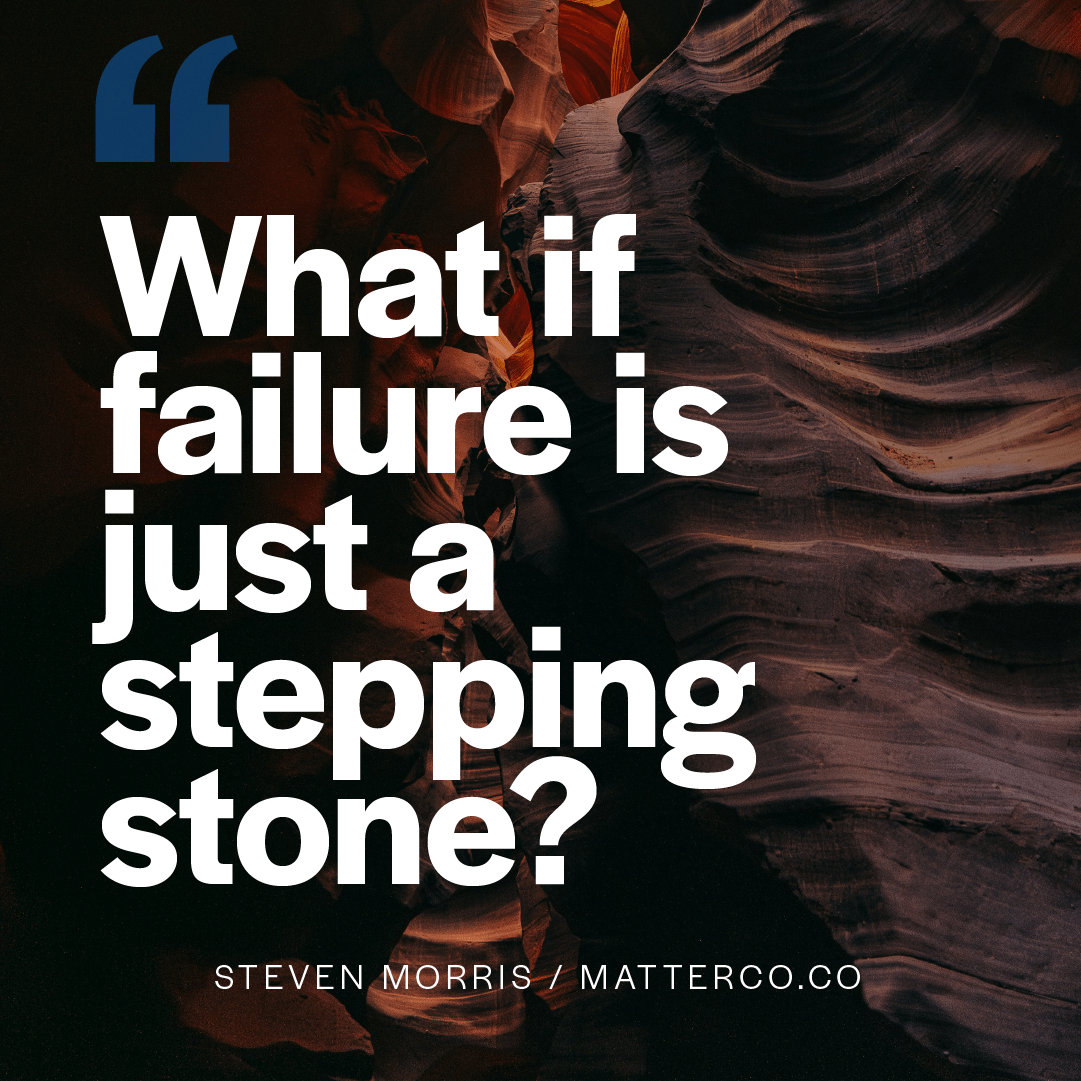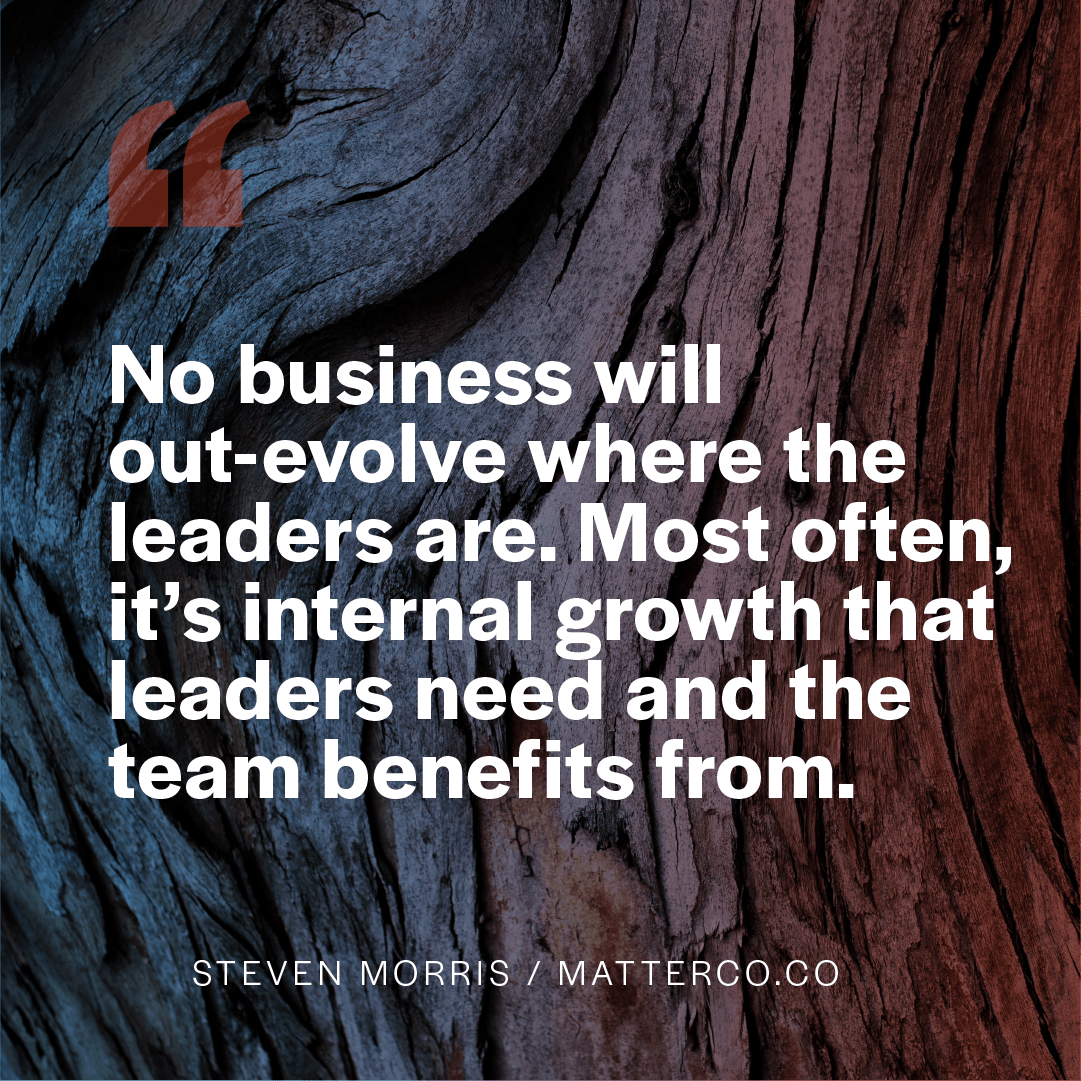
Going Inside… Your Culture
A few weeks ago I was working with a client-partner on a series of brand-culture activation workshops when something surprising happened.
I was running a culture-focused workshop that’s part of my brand-integration process. During the workshop with the executive team, I was posing a question around the room when one of the leaders literally sat on their hands. This movement happened during a moment of silence (the think deeply kind), when the room was processing their thoughts on a difficult question.
I could see the discomfort in the body language of this leader who was literally sitting on their hands. Later in the workshop, they openly confided that they were very uncomfortable with the silence, not the question — and they went against their normal reaction to fill the room with comments. And, instead, they said, “I went inward.”
I think it’s pretty safe to say we all have a fairly rich inner world. It can be filled with self-doubt, criticism, multiple voices coming from our upbringing, and family of origin attachment style. And, our inner dialog can be filled with kindness, love, and encouragement. Most of us have a complex mixture of each.
I also think it’s safe to say that self-reflection and the awareness that it yields are vital and necessary elements of good relationships — at work, at home, and everywhere. The health of our relationships is elevated when we cast an inward view and self-reflect. When we become more familiar without inner dialogs, thoughts, and feelings, we can notice the patterns that paint our outer worldview, actions, and behaviors.
Without self-awareness, our communication and actions can be clouded by our unobserved inner emotions.
Without self-awareness, it is hard to be truly ourselves as teammates and leaders.
Without this self-awareness, we cannot reclaim the impulses that dominate our lives. When we practice internal self-awareness, we reshape how we habitually show up in the world. And, in turn, we can recast the outer self-awareness of how we affect those around us.
Creating a culture that’s built on self-awareness can minimize unnecessary assumptions, conflicts, and arguments. In the science of social structures co-regulation (how the group responds to the leaders’ emotional state) happens when leaders manage their own inner state of emotions.
Here, it’s worth repeating something that I’ve seen time and time again: no business will out-evolve where the leaders are. Most often, it’s internal growth that leaders need and the team benefits from.
“Until you make the unconscious conscious it will direct your life and you will call it fate.”
— Carl Jung
Self-aware teams are: More efficient, innovative, better communicators, and more rewarding to be part of. Few teams are naturally self-aware, but it’s buildable.
Three Pillars for Organizational Self Awareness:
- Leaders who model the way. All organizations will embody and mimic the style of the leader. The leader must show the way through consistent behavior and a willingness to be open, honest, transparent, and courageous in the face of human imperfection—their own and others.
- Psychology safety. Teams that trust one another are able to lean into their individual and team strengths, while showing their weaknesses and asking for help when needed.
- Values in action. By defining your values (or principles) and putting them into action, teams have an ongoing process to support consistent and aligned team behavior. This “operating system” is built on core values that define standards of behavior and excellence throughout the organization.
Here’s the point.
Self-aware people and teams take the risk of vulnerability because they have the confidence to stand on their deeply held and conscious beliefs. They understand how their behavior affects others and therefore, treat others with respect in their communication.
The more people — especially leaders — that practice self-awareness, the more it’s emulated.
Worth noting, the leader that sat on their hands demonstrated a high degree of self-awareness that earned deeper team trust. Several team members expressed appreciation for what they so vulnerably shared. And, their actions encouraged others to do the same, which deepened our work and enlivened this leadership team.
If you want a high-performing culture (and, who doesn’t?), you need a self-aware team.
If you’re interested in a higher-performing team, I have tools and workshops that I offer to cultivate greater team self-awareness. And, I can train your team on how to create brand-culture integration. Just drop me a line if you’d like to know more.

Great Work, Beautiful Thinking, Meaningful Life
3-Way Author Conversation with
Charlotte Lockhart (founder of the global movement for 4 Day Week)
&
Michael Bungay Stenier (Best-Selling Author of The Coaching Habit)
hosted by, me, Steven Morris
Live & Virtual Event — October 19 (US) — 1 pm PT / 4 pm ET
USA — 1 pm PT / 4 pm ET
We’re living in unprecedented times in the world of work and the future of work. Maybe, just maybe, work environments are changing for the better.
As business leaders, we can help people and our companies re-think, re-ignite, and re-design how we approach effective work while getting clear and actionable toward the worthy goals that we aim to achieve.
When we employ our imaginative resources and challenge conventional thinking about how, why, and what we do at work, we can make meaningful changes.
Both Charlotte Lockhart and Michael Bungay Stanier (aka MBS) are breaking bold, positive, and creative ground in the global changes that are revitalizing and bringing more meaning to the world of work.
This conversation will be hosted by brand and culture-building expert, Steven Morris, whose work and writing are committed to helping businesses (and their leaders) realize their greatest potential.
Join us for a live Author 3-Way Conversation (via Zoom) to explore what it means to do great work, live a meaningful life, and explore beautiful thinking.
Seating is limited; registration is required. This live, virtual conversation will be recorded via Zoom — so feel free to register even if you can’t make the live event.
Join us for a global conversation:
October 20 / Australia & New Zealand — 6 am Australian Eastern Time / 8 am Auckland Time
October 19 / USA — 1 pm PT / 4 pm ET
If you want a more trusting team, a culture of belonging or a magnetic brand that attracts more of the right customers, I can help. If you'd like to explore if working together makes sense, drop me a line.




